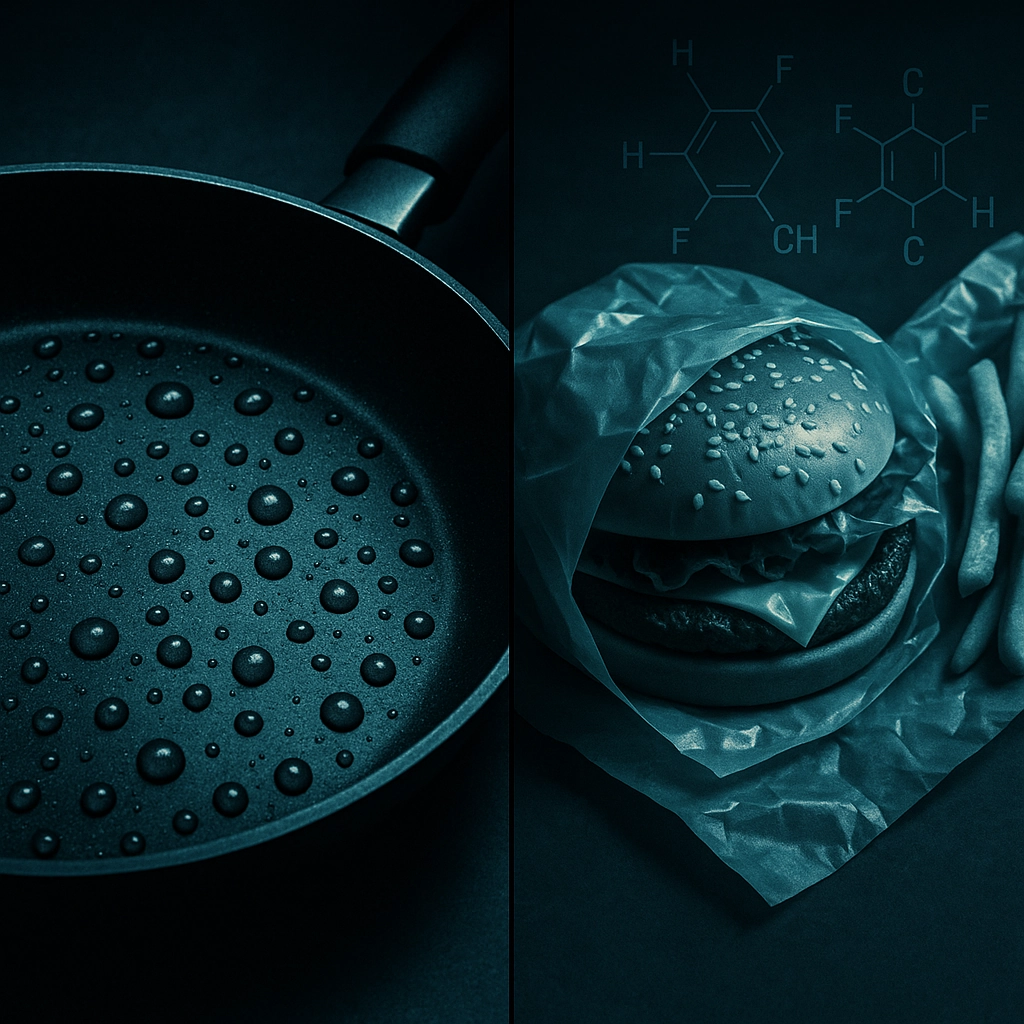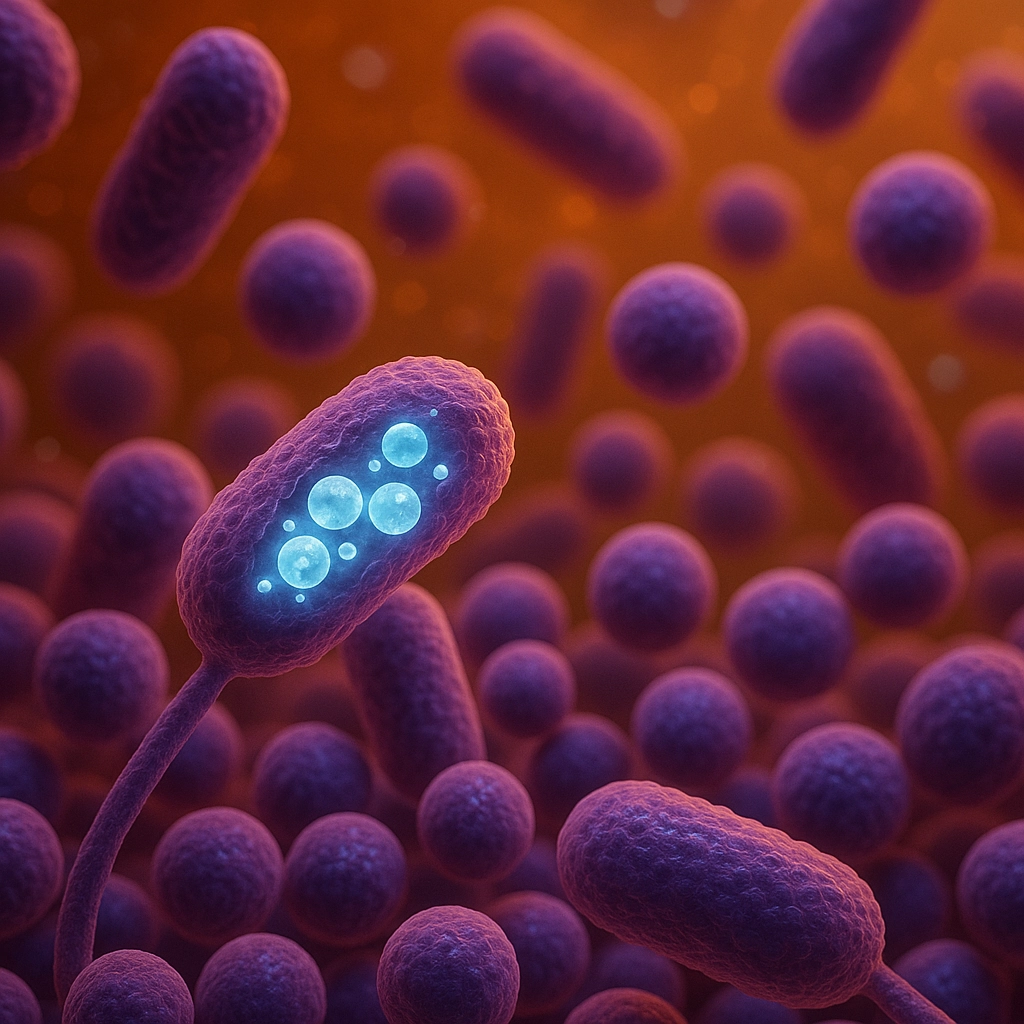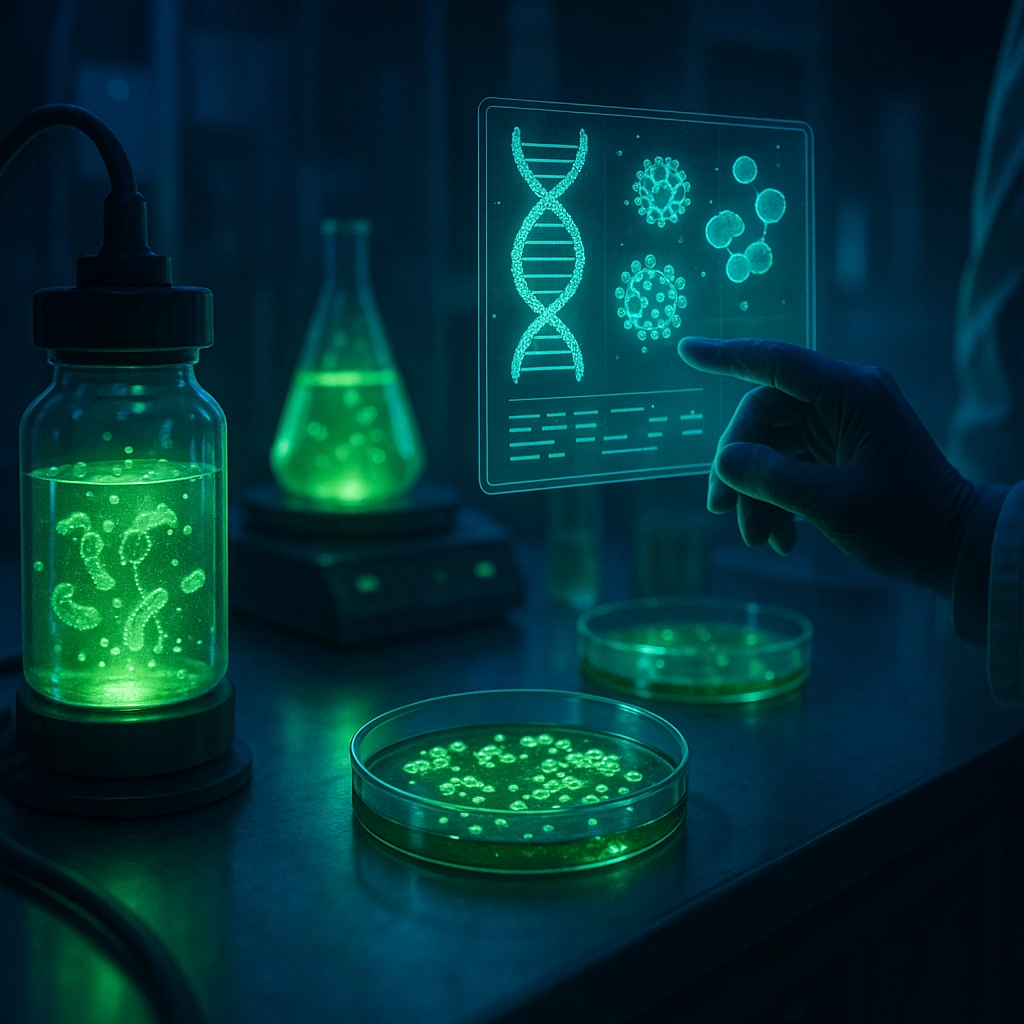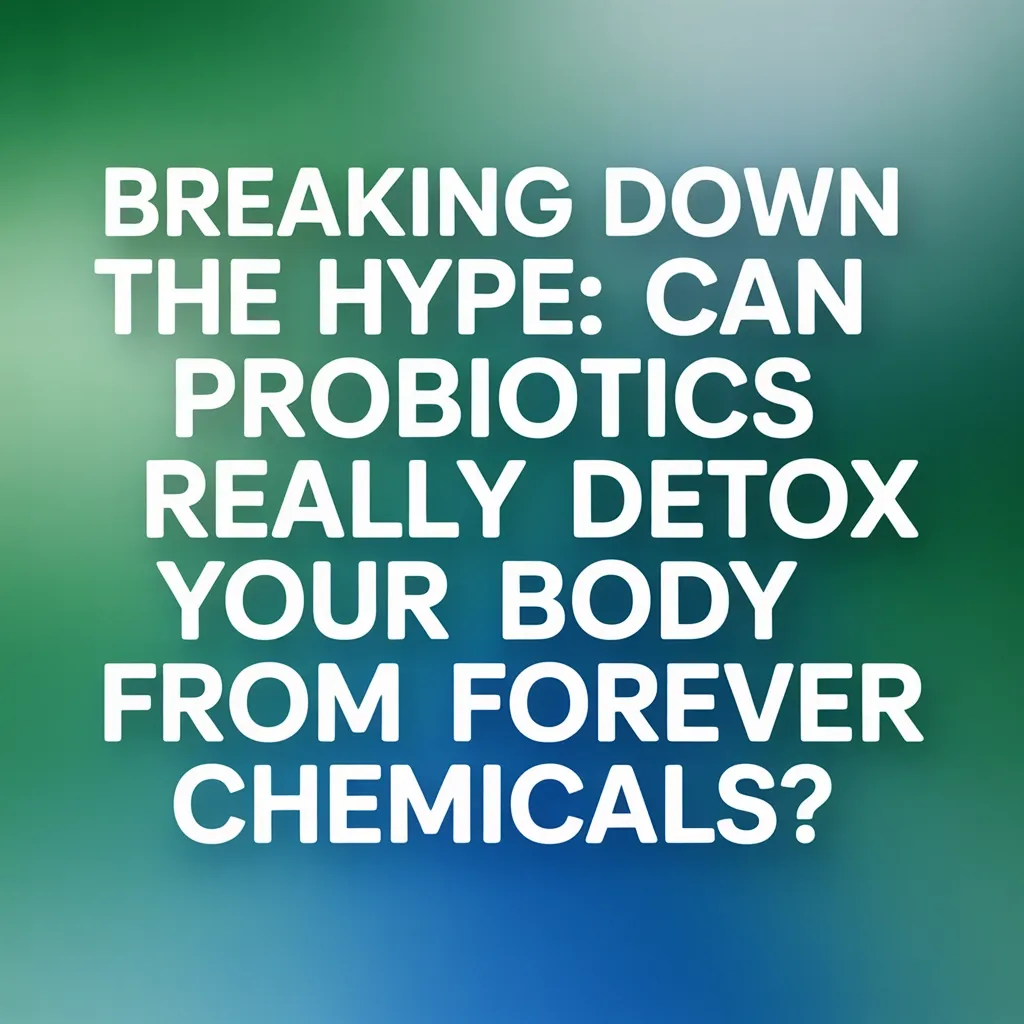The Rising Concern About "Forever Chemicals"
We're living in an era where environmental toxins are increasingly making headlines—and for good reason. PFAS (per- and polyfluoroalkyl substances), often called "forever chemicals," have infiltrated virtually every aspect of modern life. From non-stick cookware and water-resistant clothing to food packaging and firefighting foam, these synthetic compounds have become ubiquitous in our environment.
The nickname "forever chemicals" isn't just clever marketing—it's a disturbing reality. These compounds can persist in the environment and our bodies for decades, potentially causing harm long after exposure. Research has linked PFAS exposure to various health concerns, including hormone disruption, immune system effects, and potentially increased cancer risks.
As awareness grows, so does the market for "solutions." Probiotics are increasingly being touted as a natural way to combat these persistent toxins—but is there science behind the sales pitch, or is it just another health hype bubble?
At Fugen Health in Erina, we believe in evidence-based approaches to wellness, which is why we're taking a deep dive into what the research actually shows about probiotics and environmental toxins.
Understanding PFAS: The Chemicals That Won't Quit
Before exploring potential solutions, it's important to understand what we're dealing with. PFAS comprise thousands of different chemicals characterized by their carbon-fluorine bonds—among the strongest chemical bonds in nature. This molecular stability is what makes them so useful in consumer products but also incredibly resistant to breaking down.
PFAS can enter our bodies through:
- Contaminated drinking water
- Food (either from packaging or grown in contaminated soil)
- Consumer products (cosmetics, cleaning products, etc.)
- Household dust
- Cookware
Once inside, these chemicals can accumulate in various tissues and organs, including the liver, kidneys, and even blood. While our bodies have natural detoxification systems, PFAS often bypass these mechanisms due to their unique chemical structure.

The prevalence of these chemicals has reached concerning levels. A CDC study found PFAS in the blood of 97% of Americans tested. This widespread exposure has prompted regulatory agencies worldwide to begin setting limits on acceptable PFAS levels in drinking water and consumer products.
The Gut-Toxin Connection: More Complex Than We Thought
The human digestive system isn't just for processing food—it's a sophisticated interface between our bodies and the environment. The gut microbiome, comprising trillions of bacteria, fungi, and other microorganisms, plays a crucial role in this relationship.
Emerging research suggests that our gut bacteria may influence how we process environmental toxins, including PFAS. This happens through several mechanisms:
- Direct interaction with toxins: Some bacteria can bind to toxic compounds, potentially limiting their absorption.
- Metabolic transformation: Certain microbes may alter the chemical structure of toxins, potentially making them less harmful.
- Immune system modulation: A healthy microbiome supports proper immune function, which can help manage the inflammatory response to toxins.
This gut-toxin relationship has sparked interest in probiotics as potential allies against environmental pollutants. At Fugen Health in Erina, we've long recognized the importance of gut health for overall wellness, but the specific question remains: Can probiotics actually help with PFAS detoxification?
The Science Behind Probiotics and PFAS: Promising but Preliminary
Recent research from the University of Cambridge, published in prestigious journals like Nature Microbiology, has provided intriguing insights into the potential role of certain gut bacteria in managing PFAS exposure.
The key findings from these studies include:
- Absorption capabilities: Certain strains of gut bacteria, particularly some E. coli variants, demonstrated the ability to absorb between 20-75% of PFAS compounds in laboratory settings.
- Storage mechanism: These bacteria appear to store the toxins in cellular clumps, effectively sequestering them.
- Elimination pathway: In studies using "humanized" mice (those given human gut bacteria), researchers observed increased PFAS elimination through feces, suggesting that gut microbes may facilitate toxin removal.
This research has generated considerable excitement in both scientific and health communities. The idea that our gut microbiome could potentially help us manage exposure to these persistent chemicals is appealing, especially given the challenges of avoiding PFAS entirely.

Reality Check: The Gap Between Lab Studies and Your Probiotic Supplement
While the research is promising, it's crucial to understand the limitations of current studies and the gap between laboratory findings and commercially available products.
Key limitations to consider:
- Human studies pending: Most of the research demonstrating PFAS absorption by bacteria has been conducted in laboratory dishes or mouse models. Human microbiome complexity may yield different results.
- Strain specificity: Only specific bacterial strains have demonstrated significant PFAS absorption. Most commercial probiotics don't contain these specific strains in sufficient quantities.
- Dosage uncertainty: The effective quantities needed for humans remain unknown. The mice in studies received carefully controlled microbial transplants, not oral supplements.
This doesn't mean probiotics have no value—they offer numerous well-documented health benefits. However, at Fugen Health in Erina, we encourage a realistic understanding of what current science supports when it comes to detoxification claims.
A Holistic Approach to Environmental Toxin Exposure
Rather than focusing solely on probiotics as a "detox solution," a more comprehensive approach to managing environmental toxin exposure might include:
1. Reduce Exposure
- Filter drinking water using activated carbon or reverse osmosis systems
- Choose PFAS-free cookware (ceramic, cast iron, stainless steel)
- Minimize consumption of highly processed foods and fast food in wrappers
- Check consumer products for PFAS-free certifications
2. Support Natural Detoxification Pathways
- Stay well-hydrated to support kidney function
- Maintain healthy liver function through balanced nutrition
- Ensure regular bowel movements through adequate fiber intake
- Consider foods that support Phase I and Phase II liver detoxification (brocolli, cabbage, cauliflower, green tea, berries and citrus)
3. Promote Overall Gut Health
- Consume diverse plant foods to support microbiome diversity
- Include fermented foods like yogurt, kefir, sauerkraut, and kimchi
- Consider an E.coli probiotic called Mutaflor for general gut health benefits
- Prioritize prebiotic foods that feed beneficial bacteria
For parents concerned about children's exposure, these principles apply equally, though with developmentally appropriate adaptations. Our team at Fugen Health in Erina can provide tailored guidance for families looking to minimize environmental toxin exposure.
Future Directions: Where the Science Is Heading
The research on microbiome-based approaches to environmental toxins is rapidly evolving. Several promising avenues are being explored:
Targeted probiotic formulations: Scientists are working to develop probiotics containing specific PFAS-absorbing bacterial strains, designed explicitly for toxin binding.
Microbiome modulation strategies: Rather than introducing new bacteria, researchers are exploring ways to support the growth of native detoxifying bacteria through specific dietary components.
Engineered bacterial solutions: Some research groups are investigating genetically modified bacteria designed specifically for environmental toxin remediation.
Combination approaches: Future interventions might combine specialized probiotics with compounds that enhance toxin binding and elimination.

The Bottom Line: Separating Fact From Fiction
Can probiotics detox your body from forever chemicals? Based on current evidence, the answer is nuanced:
- The mechanism exists: Certain gut bacteria can indeed bind to and potentially help eliminate some PFAS compounds.
- Commercial products lag behind: No existing probiotic supplement has been proven effective for PFAS detoxification in humans.
- Future potential remains: The research opens promising avenues for specialized probiotics or microbiome-based approaches.
At Fugen Health in Erina, we're committed to staying at the forefront of nutritional science while maintaining a grounded approach to health claims. We believe in the tremendous potential of microbiome science but also recognize the importance of distinguishing between established facts and emerging research.
Practical Recommendations
For those concerned about environmental toxins:
- Focus on the fundamentals: Prioritize overall gut health through diet diversity, fermented foods, and fiber-rich plant foods.
- Reduce exposure where possible: Make informed choices about food packaging, cookware, and household products.
- Stay informed: Follow reputable sources for updates on PFAS research and recommendations.
- Consider individualized guidance: Environmental toxin concerns are complex and often benefit from personalized approaches. Our team can provide tailored nutrition and lifestyle strategies based on your specific situation.
While the idea of a simple probiotic solution to complex environmental toxins is appealing, the reality is more nuanced. The good news is that research is advancing rapidly, and we're learning more about the remarkable ways our microbiome interacts with our environment every day.
By combining practical exposure reduction with evidence-based approaches to gut health, we can take meaningful steps toward minimizing the impact of these persistent chemicals on our health—even as we await more targeted solutions.
Curious about how your gut health might be affecting your overall wellness? Book a consultation with our nutrition experts at Fugen Health in Erina to develop a personalized approach to your health goals.

